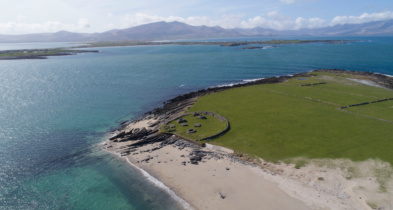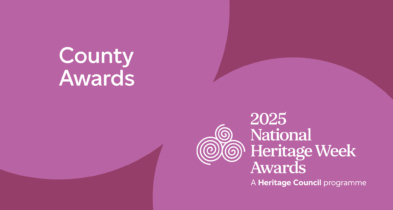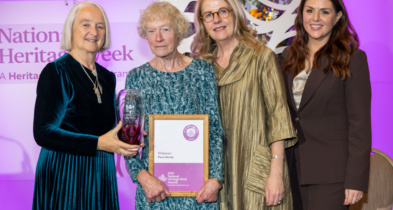
Tips for researching your heritage project

This year’s National Heritage Week is all about projects and with so much heritage all around us, there are so many topics to choose from!
The theme for National Heritage Week 2020 is ‘Heritage and Education: Learning from our heritage’ and we’re looking for any local or national projects that respond to that theme.
To make it a little easier to choose, we’ve narrowed it down to three sub-themes: 1) Heritage on your doorstep; 2) Re-learning skills from our heritage; 3) The heritage of education. You’ll find ideas on what you could look at in the ‘Inspiration for your National Heritage Week project’ blog.
Choosing your topic
Choose a topic that’s a) of interest to you, b) would be of interest to others, and c) on which there’s sufficient information to develop into a project. Once you’ve chosen your topic, it’s good at this point to think about how you’re going to showcase it for the Heritage Week website, as this will give you a clear focus. Things to keep in mind are: are there lots of pictures, would it look good in a report or a presentation?; are there lots of people to speak to, or can you get good audio in your local library – would it make a good podcast or radio piece? Is there a good mix of both – could you make a video or develop a website?
Building your team
Who’s going to work on your project? Do you have the time to work on the project on your own or the skills to deliver it from start to finish? Consider the business mantra ‘you do what you do best, outsource the rest’ – in this case, ‘outsourcing’ could mean taking the opportunity to work with willing family, friends or neighbours whose expertise would complement your skills. Teamwork might be particularly useful if the best platform to showcase your project would involve learning new technical skills.
Register your idea
Once you’ve chosen your topic, register as a project organiser to register your project idea, so that it can be listed on the Heritage Week website, once approved.
Make a schedule – and stick to it
Make sure to give your project a structure. Working backwards from when you need to submit your project (project submissions will open in early July and will close at noon on 4th August), give yourself a start and an end date, and timeline key milestones that you need to meet along the way to be finished on time to submit it. If you’re working as a team, make sure to have a clear project leader, who will co-ordinate the work of the various team members and make sure you’re on track.
Do your research
Most projects will require some level of research. Before you start, have a think about what you would like to find out through your project, what information you need to find out, and where you might find that information. A helpful set of questions to keep in mind when researching a project is the 4Ws and 1H – who, where, why, when, what, how? There are some great research resources in the Useful Links section of the website, and even more if you register as a project organiser.
Develop your project
Once you’ve done your research, focus on how you’re going to present your project in a sharable manner. Is the initial platform you considered still the best one? If not, what could you consider instead?
Promote it in your community
The new approach to Heritage Week 2020 is designed to promote the sharing of experience and knowledge – consider how you can share your findings with your wider community. Would your local radio station or newspaper be interested in covering it? Could you set up a social media account dedicated to your project’s subject matter? Could you distribute a newsletter around your locality?
Submit
The deadline for submissions is noon on Tuesday, 4th August.
The most engaging projects will be featured on the Heritage Week website during National Heritage Week 2020 and will be considered for a Heritage Week 2020 Award. Good luck!

